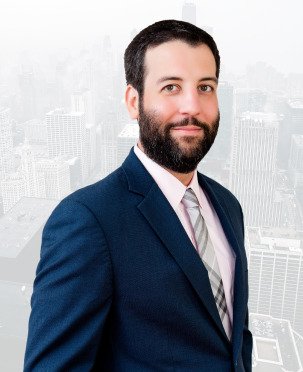
Suffering an injury can be traumatic, and you may not be thinking of the future consequences of the decisions you make in the aftermath. But those decisions can have a lasting impact on your health and your finances. We’ll discuss what not to do when you’re injured.
Don’t Wait to Seek Medical Care
Not all injuries are immediately apparent. Even if you think you’ve suffered no injuries after an auto accident or a slip and fall, it’s critical to seek immediate medical care. Doing so will protect your health and create a record of your injuries, which will be essential for any future legal actions you may take.
Don’t Admit Fault or Discuss the Incident with Anyone
While Florida is a no-fault state, those injured in an auto accident may still be able to file a liability claim or personal injury lawsuit against the other party involved in the accident. For this reason, do not discuss fault or any other details of the accident with anyone. Anything you say may be used against you during the claims or legal process. Exchange contact and insurance information with the other party and keep any conversation to the basic facts.
Don’t Fail to Document the Scene
The more evidence you have, the stronger any future case you may bring. Take photos of the vehicles involved, the surrounding area, the scene, including hazards in the case of a slip and fall, and anything else you think may be relevant to the incident. This kind of visual evidence will be invaluable when determining liability and the extent of your injuries.
Don’t Fail to Report the Accident
In Florida, you are legally required to report certain kinds of accidents, especially if they involve injuries or property damage that exceeds $500. Be sure to report the accident to the proper authorities as soon as possible. Failure to do so could have legal consequences and impact your ability to receive compensation.
Don’t Settle Too Quickly
Insurance companies typically want to settle claims quickly rather than go to court, so they may offer a quick settlement. It’s important not to accept any offer until the full extent of your injuries and damages is known.
Once you agree to a settlement, you typically waive your right to seek any additional compensation. It’s best to consult an attorney with personal injury experience before accepting any settlement to ensure it fully covers your medical expenses, property damage, and any other losses.
Don’t Forego Legal Help
Navigating the legal complexities of a personal injury case is challenging for a layperson, especially when it comes to dealing with an insurance company and potential legal action. Consulting with an experienced personal injury attorney can provide valuable guidance and ensure that your rights are protected and you receive the compensation you deserve.
Don’t Ignore the Statue of Limitations
A statute of limitations is the timeframe during which you must file a lawsuit. Florida’s statute of limitations for a personal injury case is generally four years. Failing to file within that timeframe can mean you forfeit your right to pursue legal action. Make sure you’re aware of this deadline and take any necessary legal action before the statute of limitation expires.
Contact a Florida Personal Injury Lawyer
After an accident, the steps you don’t take can be just as important as those you do. Seek immediate medical attention, document the scene, and seek legal guidance.
Our legal team has over 40 years of experience seeking justice for our clients who have been the victims of accidents. Our attorneys have sought and won millions of dollars for our injured clients. Don’t allow your health and legal rights to go unaddressed after an accident.
Call 850-601-1111 to schedule a complimentary consultation with no obligations. This consultation will help you explore your legal options. Let us help you fight for fair compensation.

